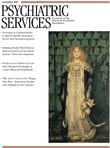Maybe this little volume would be better titled Ex-Dope, because its main character, a girl named Josephine, has had enough experience with heroin to decide that she's better off not using it—not any more anyway.
I'm a child psychiatrist, community-oriented, and specialize in helping systems work together, including our drug and alcohol system. I trained in West Virginia, where we had our share of charismatic former addicts, one male addict in particular.
Josephine is nothing like him. She isn't out to help anybody, at least not overtly. She's looking for money. And she's so in love with herself that she doesn't blink when strangers offer her a lot of money to find their missing daughter. She must think she's a natural, but if Josephine had any background in private detection, I missed it.
Of course, I might have missed it. I read Dope while on jury duty, where I was missing my usual Wednesday gig consulting with case managers and seeing outpatients. Except for the obvious soul searching that accompanied carrying around a book called Dope within the marble grandeur of the county courthouse, this compact yarn spun well in the waiting room, between wondering about criminals and fulfilling my civic duty.
Dope is a mystery, a thriller, a story absorbed with following the momentum of its own narration. One step leads to the other, and every night is followed by the next morning. Events occur on a personal level. Dope is a book about people, most of them drug-dependent individuals, criminals, and hookers.
Dope is a readable book. It moves its abstinent narrator through a number of drug-soaked environments in New York City during the 1950s. Although there are several lowdown entertainment venues featured, all are fictional, and the author, Sara Gran, doesn't bring in much of the major bebop music that was being created around that time. One club, Rose's in midtown, does have a band, but those dudes take a quick backseat. It might have been fun to have John Coltrane or Miles Davis blowing from a corner stage.
Sex is present in the novel, although not much for our heroine. Most of the sex is basically love for sale, especially in one nightmarish basement location where men and women apparently meet for anonymous coupling on bare mattresses separated by hanging sheets.
And there's death. But I don't want to tell that part of the book because the tragic, neat twist at the end is one of the book's strengths, especially for those readers who love plot. But I couldn't quite follow it.
The prose in Dope is serviceable, the characters somewhere between high-end network and cable television quality, and the action is okay. Yet the pages keep turning anyway.

